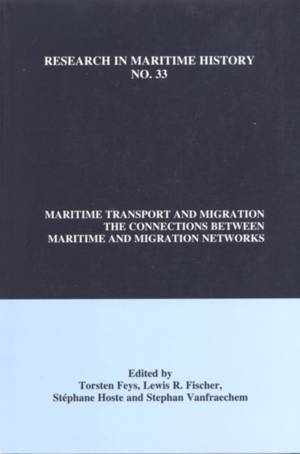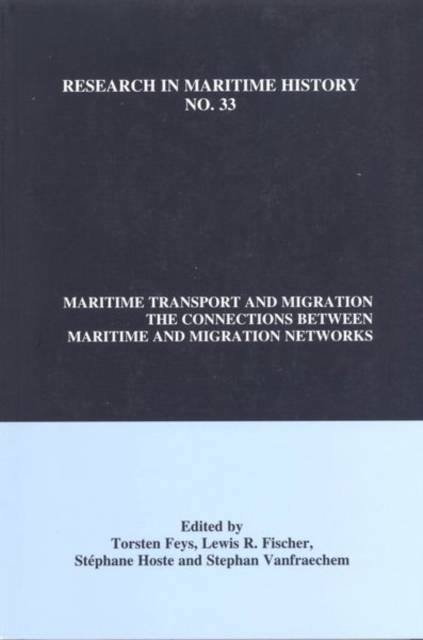
- Afhalen na 1 uur in een winkel met voorraad
- Gratis thuislevering in België vanaf € 30
- Ruim aanbod met 7 miljoen producten
- Afhalen na 1 uur in een winkel met voorraad
- Gratis thuislevering in België vanaf € 30
- Ruim aanbod met 7 miljoen producten
Zoeken
Maritime Transport and Migration
The Connections Between Maritime and Migration Networks
€ 34,95
+ 69 punten
Omschrijving
This study explores the connection between global maritime and migration networks to better understand the acceleration of the transatlantic migration rate that took place in the latter half of the nineteenth and early twentieth century. It brings together the actions of migrants, government regulators, transatlantic shipping companies, and the agents who represented them to determine the motives and opportunities for transatlantic mass-migration. The study is comprised of an introductory chapter, seven essays by maritime scholars, and a conclusion. The subject is approached from three particular discussion points: the rate of development and the accessibility of transport networks for European migrants; the competition between shipping companies and the subsequent influence on migration; and the integration of labour markets in both Europe and America. It concludes by suggesting both maritime and migration historians should merge their respective fields by including the larger frameworks of each discipline to gain further understanding of their disciplines, and identifies the role of ports and shipping companies as crucial to any further study of mass migration.
Specificaties
Betrokkenen
- Uitgeverij:
Inhoud
- Aantal bladzijden:
- 196
- Taal:
- Engels
- Reeks:
- Reeksnummer:
- nr. 33
Eigenschappen
- Productcode (EAN):
- 9780973893434
- Verschijningsdatum:
- 1/01/2007
- Uitvoering:
- Paperback
- Formaat:
- Trade paperback (VS)
- Afmetingen:
- 149 mm x 230 mm
- Gewicht:
- 340 g

Alleen bij Standaard Boekhandel
+ 69 punten op je klantenkaart van Standaard Boekhandel
Beoordelingen
We publiceren alleen reviews die voldoen aan de voorwaarden voor reviews. Bekijk onze voorwaarden voor reviews.










